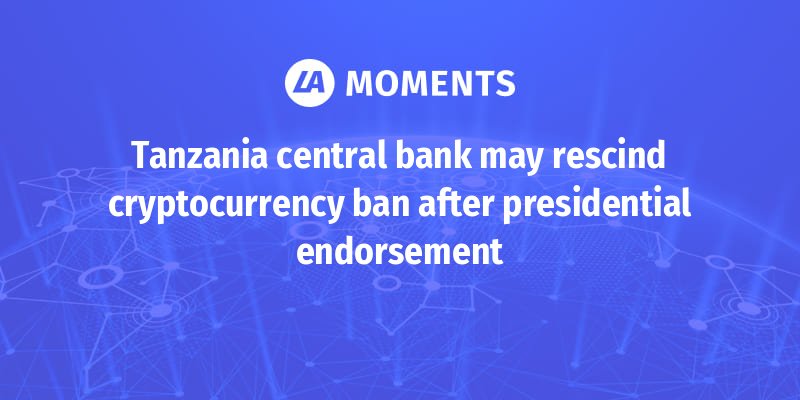How to trade cryptocurrency and make profit
Having diverse payment methods is crucial for Tanzanian traders. It’s important to select exchanges that accept local payment systems such as mobile money services, bank transfers, and credit cards. https://bettingtanzanias.com/betpawa-app/ By choosing a platform that supports Tanzanian shillings (TZS), you can avoid costly currency conversion fees and enjoy a smoother trading experience. Local payment methods also make it easier to deposit and withdraw funds.
The reputation of an exchange within the Tanzanian crypto community is an important consideration. Look for platforms that have positive reviews and are trusted by other traders in Tanzania. A well-regarded exchange is likely to offer better security, customer support, and overall reliability, ensuring that you have a trustworthy and efficient trading experience.
A diverse selection of cryptocurrencies is essential for Tanzanian traders who want to diversify their portfolios. Choose exchanges that offer a wide range of crypto assets, from popular coins like Bitcoin and Ethereum to lesser-known altcoins. A broader selection gives traders more opportunities to explore different markets, invest in promising projects, and maximize their potential returns.

Cryptocurrency market
At present, India neither prohibits nor allows investment in the cryptocurrency market. In 2020, the Supreme Court of India had lifted the ban on cryptocurrency, which was imposed by the Reserve Bank of India. Since then, an investment in cryptocurrency is considered legitimate, though there is still ambiguity about the issues regarding the extent and payment of tax on the income accrued thereupon and also its regulatory regime. But it is being contemplated that the Indian Parliament will soon pass a specific law to either ban or regulate the cryptocurrency market in India. Expressing his public policy opinion on the Indian cryptocurrency market to a well-known online publication, a leading public policy lawyer and Vice President of SAARCLAW (South Asian Association for Regional Co-operation in Law) Hemant Batra has said that the “cryptocurrency market has now become very big with involvement of billions of dollars in the market hence, it is now unattainable and irreconcilable for the government to completely ban all sorts of cryptocurrency and its trading and investment”. He mooted regulating the cryptocurrency market rather than completely banning it. He favoured following IMF and FATF guidelines in this regard.
However, in 2021, there was a backlash against donations in bitcoin because of the environmental emissions it caused. Some agencies stopped accepting bitcoin and others turned to “greener” cryptocurrencies. The U.S. arm of Greenpeace stopped accepting bitcoin donations after seven years. It said: “As the amount of energy needed to run bitcoin became clearer, this policy became no longer tenable.”
Mining for proof-of-work cryptocurrencies requires enormous amounts of electricity and consequently comes with a large carbon footprint due to causing greenhouse gas emissions. Proof-of-work blockchains such as bitcoin, Ethereum, Litecoin, and Monero were estimated to have added between 3 million and 15 million tons of carbon dioxide (CO2) to the atmosphere in the period from 1 January 2016 to 30 June 2017. By November 2018, bitcoin was estimated to have an annual energy consumption of 45.8TWh, generating 22.0 to 22.9 million tons of CO2, rivalling nations like Jordan and Sri Lanka. By the end of 2021, bitcoin was estimated to produce 65.4 million tons of CO2, as much as Greece, and consume between 91 and 177 terawatt-hours annually.

At present, India neither prohibits nor allows investment in the cryptocurrency market. In 2020, the Supreme Court of India had lifted the ban on cryptocurrency, which was imposed by the Reserve Bank of India. Since then, an investment in cryptocurrency is considered legitimate, though there is still ambiguity about the issues regarding the extent and payment of tax on the income accrued thereupon and also its regulatory regime. But it is being contemplated that the Indian Parliament will soon pass a specific law to either ban or regulate the cryptocurrency market in India. Expressing his public policy opinion on the Indian cryptocurrency market to a well-known online publication, a leading public policy lawyer and Vice President of SAARCLAW (South Asian Association for Regional Co-operation in Law) Hemant Batra has said that the “cryptocurrency market has now become very big with involvement of billions of dollars in the market hence, it is now unattainable and irreconcilable for the government to completely ban all sorts of cryptocurrency and its trading and investment”. He mooted regulating the cryptocurrency market rather than completely banning it. He favoured following IMF and FATF guidelines in this regard.
However, in 2021, there was a backlash against donations in bitcoin because of the environmental emissions it caused. Some agencies stopped accepting bitcoin and others turned to “greener” cryptocurrencies. The U.S. arm of Greenpeace stopped accepting bitcoin donations after seven years. It said: “As the amount of energy needed to run bitcoin became clearer, this policy became no longer tenable.”
Cryptocurrency
Regulators have increasingly signaled that cryptocurrencies should be regulated similarly to other securities, such as stocks and bonds. However, with the June 2024 Loper Bright Enterprises v. Raimondo Supreme Court ruling, that may change — Congress may have to clearly define crypto regulation through law making rather than allowing the SEC to enforce rules based on its interpretation. That could have major implications for the asset class in the future.
The seed words you copied down on the piece of paper are used to generate an unlimited number of private keys. A private key is a string of characters your device uses to sign transactions and to prove that you’re the owner of the account.
Cryptocurrency prices are much more volatile than established financial assets such as stocks. For example, over one week in May 2022, bitcoin lost 20% of its value and Ethereum lost 26%, while Solana and Cardano lost 41% and 35% respectively. The falls were attributed to warnings about inflation. By comparison, in the same week, the Nasdaq tech stock index fell 7.6 per cent and the FTSE 100 was 3.6 per cent down.
